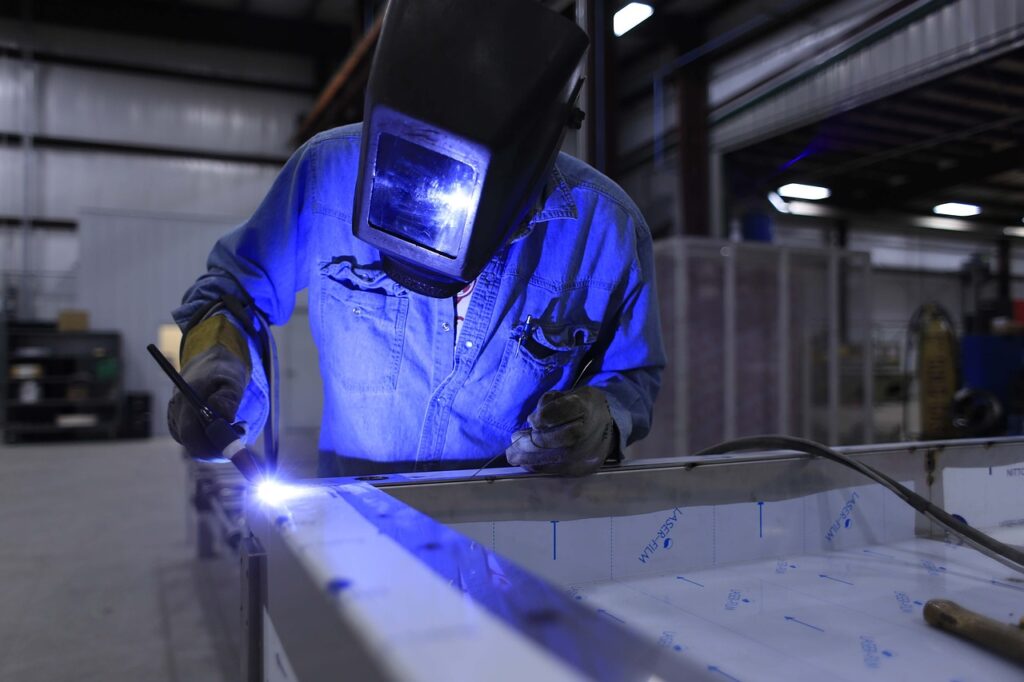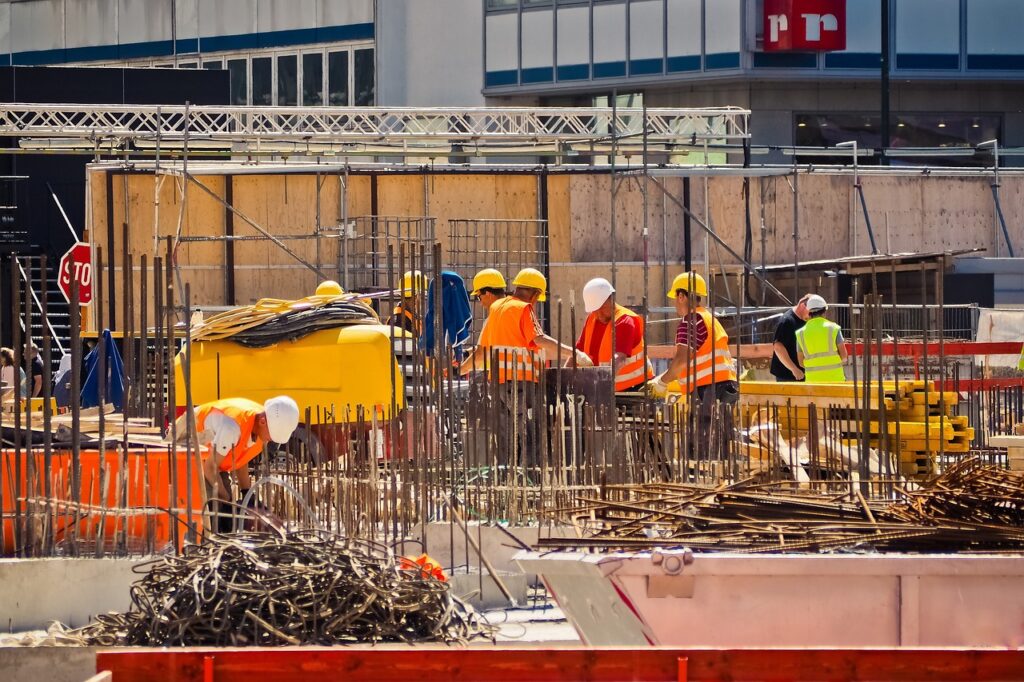The construction and skilled trades industries are vital for economic growth, fueling infrastructure projects and urban development worldwide. From electricians to carpenters, welders to plumbers, these professionals are in high demand. If you’re seeking a career in this field or are an employer hiring, here’s a comprehensive guide to navigate the opportunities, application process, and global hotspots for these roles.
| Published Date: | 4 December, 2024 |
| Hiring Industries | Construction and Skilled Trades |
| Location: | Canada, Australia, New Zealand, UK, United States |
Contents
- 1 Why Construction and Skilled Trades Jobs Are in High Demand
- 2 Top Construction and Skilled Trades Jobs in Demand
- 3 Emerging Opportunities
- 4 Top Countries Hiring Skilled Trades Professionals in 2024
- 5 How to Apply for Construction and Skilled Trades Jobs
- 6 Step-by-Step Process
- 7 Apprenticeships and Internships
- 8 Salary Expectations
- 9 Challenges in the Industry
- 10 FAQs About Hiring Construction and Skilled Trades Jobs
- 11 1. What are skilled trades jobs?
- 12 2. Do I need a certification to work in skilled trades?
- 13 3. How much can I earn in construction and skilled trades?
- 14 4. What are the best countries for construction and skilled trades jobs?
- 15 5. How can I find skilled trades job opportunities?
- 16 6. How do I apply for construction and skilled trades jobs?
- 17 7. What are the challenges in construction and skilled trades jobs?
- 18 8. Are apprenticeships available in skilled trades?
- 19 9. Can I transition to a skilled trade without prior experience?
- 20 10. Why should I choose a career in skilled trades?
Why Construction and Skilled Trades Jobs Are in High Demand
The rising demand is driven by
- Urbanization: Expanding cities need residential and commercial infrastructure.
- Government Investments: Large-scale projects like highways, bridges, and energy plants are boosting job creation.
- Technological Innovation: Advanced tools and green construction practices require a skilled workforce.
- Aging Workforce: Many seasoned professionals are retiring, opening up opportunities for new talent.
Top Construction and Skilled Trades Jobs in Demand
Here are some of the most sought-after positions:
- Welders: Expertise in metal structures and fabrication.
- Electricians: Installation and maintenance of electrical systems.
- Plumbers: Ensuring efficient water and sewage systems.
- Carpenters: Specialized in woodwork and framing.
- Heavy Equipment Operators: Operating cranes, bulldozers, and excavators.
Emerging Opportunities
New roles like sustainable construction specialists, drone operators for site surveying, and 3D printing technicians are growing rapidly.

Top Countries Hiring Skilled Trades Professionals in 2024
- Canada
- High demand for welders, electricians, and heavy equipment operators.
- Visit Job Bank Canada for listings.
- Australia
- Opportunities in carpentry, plumbing, and electrical trades due to housing projects.
- Check Seek Australia for the latest jobs.
- United States
- Infrastructure projects require masons, welders, and HVAC technicians.
- Explore Indeed USA for updates.
- United Kingdom
- Strong demand for electricians, plumbers, and construction supervisors.
- See TotalJobs UK for job openings.
- New Zealand
- Rapid urbanization drives the need for skilled trades professionals.
- Look at Work and Income NZ for job postings.
How to Apply for Construction and Skilled Trades Jobs
Step-by-Step Process
- Update Your Resume: Highlight relevant skills, certifications, and past projects.
- Obtain Certifications: Industry-specific licenses or certifications (e.g., AWS for welders, state licensing for electricians) can boost your application.
- Search Online Job Portals:
- Contact Recruitment Agencies: Specialized agencies can match you with employers.
- Network: Attend job fairs, trade expos, or join trade associations for connections.
- Prepare for Interviews: Showcase your problem-solving skills, reliability, and technical expertise.
Apprenticeships and Internships
Consider apprenticeships to gain hands-on experience. Many countries offer government-backed programs for skilled trades.
Salary Expectations
- Entry-Level: $30,000–$50,000 annually
- Experienced Professionals: $50,000–$90,000 annually
- Specialized Roles: $90,000–$120,000 annually
Salaries vary based on location, expertise, and project type.
Challenges in the Industry
- Skills Shortage: A global lack of trained professionals.
- Workplace Safety: Roles in construction have higher safety risks.
- Seasonal Work: Jobs may be affected by weather or project schedules.
- Retention Issues: Skilled workers often shift to better-paying roles.

FAQs About Hiring Construction and Skilled Trades Jobs
1. What are skilled trades jobs?
Skilled trades jobs refer to occupations requiring specialized training, certifications, or apprenticeships. Examples include electricians, welders, plumbers, carpenters, and heavy equipment operators.
2. Do I need a certification to work in skilled trades?
Yes, most skilled trades require certifications or licenses, such as
- Welders: AWS (American Welding Society) certification.
- Electricians: State or regional licenses.
- Plumbers: Plumbing certifications depending on local regulations.
Check the specific requirements for your desired role and country.
3. How much can I earn in construction and skilled trades?
Salaries depend on experience, location, and specialization. On average
- Entry-Level Positions: $30,000–$50,000 annually.
- Experienced Professionals: $50,000–$90,000 annually.
- Specialized Roles (e.g., crane operators): $90,000–$120,000 annually.
4. What are the best countries for construction and skilled trades jobs?
Top hiring countries include
- Canada: High demand for welders and electricians.
- Australia: Growing opportunities in carpentry and plumbing.
- USA: Focus on infrastructure projects.
- UK: Demand for plumbers and construction supervisors.
- New Zealand: Skilled trades professionals needed for urban expansion.
5. How can I find skilled trades job opportunities?
You can explore job opportunities on the following platforms
6. How do I apply for construction and skilled trades jobs?
Follow these steps
- Update your resume with relevant skills and experience.
- Obtain any required certifications or licenses.
- Search for jobs on reputable platforms.
- Apply online or through recruitment agencies.
- Prepare for interviews by highlighting your technical expertise and safety awareness.
7. What are the challenges in construction and skilled trades jobs?
- Workplace Safety: Risk of accidents on-site.
- Seasonal Work: Projects may depend on weather conditions.
- Skills Shortage: Global demand exceeds the supply of qualified professionals.
8. Are apprenticeships available in skilled trades?
Yes, many countries offer apprenticeship programs to help individuals gain practical experience and certifications. Research local options through trade unions, training centers, or government initiatives.
9. Can I transition to a skilled trade without prior experience?
Yes, you can start with entry-level roles, training programs, or apprenticeships to build your skills and gain experience.
10. Why should I choose a career in skilled trades?
Skilled trades offer
- High demand and job security.
- Competitive salaries.
- Opportunities to specialize in various fields.
- The satisfaction of building and contributing to essential infrastructure.
Good luck!!












Am from Tunisia i need a job help me please
I’m from Timor-Leste I need a Job specially Farming
Mark tallada , from phillipines, welder